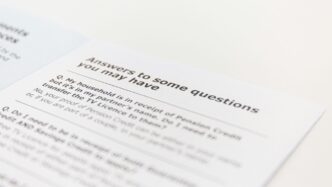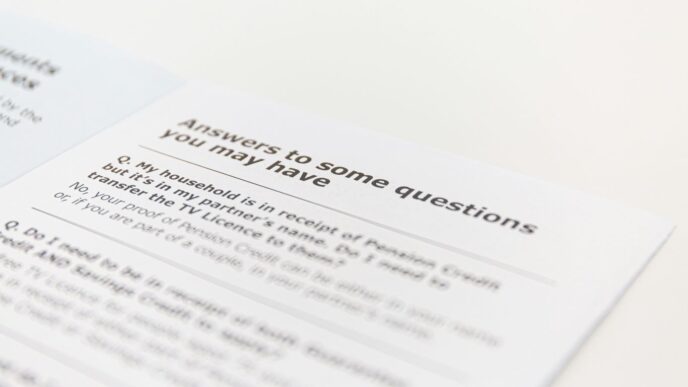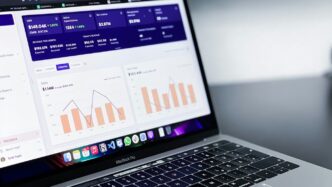Getting ready for a job interview can feel like a lot, right? You’ve got your resume looking sharp, but what about the actual chat? This guide is all about making sure you feel ready for whatever comes your way. We’ll look at how a good interview skills PDF can be your secret weapon, how to get prepared, and what to say when they ask those tricky questions. Plus, we’ll cover how to show off what makes you a great candidate and how to really connect with the person interviewing you. It’s all about making that next opportunity yours.
Key Takeaways
- A solid interview skills PDF acts as your personal guide, helping you organize thoughts and research before the big day.
- Knowing the company inside and out and understanding exactly what the job needs are steps you can’t skip.
- Practice makes perfect, especially when it comes to talking about your strengths, handling weaknesses, and answering those behavioral questions.
- Showing you can lead, solve problems, and are comfortable with technology will make you stand out.
- Asking smart questions and being yourself, not just a robot reciting answers, are vital for making a real connection.
Mastering Your Interview Skills PDF
So, you’ve got an interview lined up. That’s great news! But let’s be real, just showing up isn’t enough anymore. You need to be prepared, and that’s where a good old-fashioned PDF guide comes in handy. Think of it as your personal cheat sheet, a place to stash all the important stuff you need to remember so you don’t blank out when the pressure’s on.
Understanding the Value of an Interview Skills PDF
Honestly, the job market is pretty crowded these days. A polished resume is just the first step. What really makes a difference is how you present yourself during the interview. A PDF guide helps you get your thoughts organized. It’s not about memorizing scripts, but about having a clear picture of what you want to say and why. This document is your secret weapon for showing you’re serious about the opportunity. It helps you consolidate all your research about the company and the role, making sure you don’t miss any key points. Plus, it’s a great way to build your confidence before you even walk into the room (or log into the video call).
Key Components of an Effective Interview Skills PDF
What should go into this magical PDF? Well, it needs to be practical. Here are some must-haves:
- Company Snapshot: Jot down the company’s mission, recent news, and what they do in their industry. Knowing this shows you’ve done your homework.
- Role Breakdown: List the main responsibilities and the skills they’re looking for. Then, match your own experience to these points. It’s like a checklist for yourself.
- Your Personal Pitch: A short, sharp summary of who you are professionally and what you bring to the table. Think of it as your elevator speech.
- Question Prep: Anticipate common questions and jot down some bullet points for your answers. Don’t write full paragraphs, just key ideas.
- Your Questions: Always have a few thoughtful questions ready to ask the interviewer. It shows you’re engaged and thinking ahead.
Leveraging Your Interview Skills PDF for Success
Having the PDF is one thing; using it effectively is another. Before the interview, give it a good read-through. It’s like studying for a test – you want to be familiar with the material. During the interview, you might be able to glance at it discreetly, or at least use it as a mental guide. After the interview, take a few minutes to jot down notes about how it went. What questions were tough? What did you do well? This helps you update your PDF for the next time. It’s a living document that gets better with every interview you have.
Strategic Preparation for Your Next Interview
Getting ready for an interview isn’t just about showing up; it’s about doing your homework. Think of it like prepping for a big game or a presentation – you wouldn’t just wing it, right? This section is all about making sure you walk in feeling confident and informed.
Consolidating Company Research
Before you even think about what you’ll say, you need to know who you’re talking to. Spend some real time digging into the company. What do they actually do? What’s their mission, their values? Look at their recent news, any big projects they’ve announced, or even their social media. Understanding the company’s current landscape will help you tailor your answers and show you’re genuinely interested. It’s not just about finding facts; it’s about piecing together a picture of their world.
Analyzing Role Requirements
Now, zoom in on the job description itself. Break it down. What are the absolute must-have skills? What are the nice-to-haves? Think about how your own experience lines up with each point. Don’t just skim it; really dissect what they’re asking for. Sometimes, it helps to make a quick list:
- Required Skills: List them out.
- Your Experience: Match your background to each skill.
- Gaps: Note any areas where you might need to explain your fit.
This exercise helps you see where you shine and where you might need to prepare a more detailed explanation.
Crafting Your Personal Pitch
This is your "elevator pitch" for the interview. It’s a short, compelling summary of who you are, what you bring to the table, and why you’re a good fit for this specific role at this specific company. It should be more than just reciting your resume. Think about your key accomplishments and how they relate to the job. Practice saying it out loud – it should sound natural, not rehearsed. A good pitch usually covers:
- Your current situation or recent experience.
- Your key skills and strengths relevant to the role.
- What you’re looking for and why this opportunity excites you.
Having this ready means you can answer "Tell me about yourself" with confidence and set a positive tone right from the start.
Answering Common Interview Questions
So, you’ve done your homework, researched the company, and even practiced your handshake. Now comes the part where you actually have to talk. This is where those common interview questions come in, and honestly, they can feel like a minefield if you’re not ready. But don’t sweat it. Think of these questions not as tests, but as chances to show who you are and what you can do.
Articulating Strengths with Confidence
This is your moment to shine, right? When they ask about your strengths, they’re not just looking for a list. They want to know how those strengths actually help you do a job well. Instead of just saying "I’m a good communicator," try something like, "I’m good at explaining complex ideas simply. In my last role, I helped bridge the gap between the technical team and the marketing department by translating project updates into language everyone could understand, which really sped up our decision-making." See? It’s about giving a little story, a real example. The key is to connect your strengths directly to the needs of the role you’re interviewing for.
Here are a few ways to think about it:
- Pick 2-3 strengths that are most relevant to the job description.
- Prepare a brief example for each strength, using the STAR method (Situation, Task, Action, Result) if it helps.
- Practice saying them out loud so they sound natural, not rehearsed.
Addressing Weaknesses Constructively
Okay, this one can be tricky. Nobody likes talking about what they’re not great at. But interviewers ask this to see if you’re self-aware and if you’re willing to grow. The trick is to pick a real weakness, but not one that would stop you from doing the job. For instance, maybe you’re not the most organized person naturally. Instead of just saying "I’m disorganized," you could say, "I used to struggle with keeping track of all my tasks. To fix that, I started using a digital planner and setting daily reminders, which has made a huge difference in my productivity." It shows you know there’s an area for improvement and, more importantly, that you’re actively doing something about it. It’s all about showing you’re proactive.
Responding to Behavioral Questions Effectively
These are the "Tell me about a time when…" questions. They’re designed to see how you’ve handled situations in the past, because, well, past behavior is often a good predictor of future behavior. When you get one of these, take a breath. Think of a specific situation that fits the question. Did you have to deal with a difficult coworker? Handle a tight deadline? Solve a tricky problem? Again, the STAR method is your friend here. It helps you structure your answer clearly:
- Situation: Briefly describe the context.
- Task: What was your goal or responsibility?
- Action: What specific steps did you take?
- Result: What was the outcome? What did you learn?
For example, if asked about a time you failed, you might talk about a project that didn’t go as planned, what you learned from it, and how you applied that lesson later. It’s not about admitting defeat; it’s about showing resilience and the ability to learn from mistakes.
Demonstrating Essential Candidate Qualities
So, you’ve prepped your answers, researched the company up and down, and you’re ready to impress. But beyond just answering questions, how do you actually show them you’re the right person for the job? It’s about more than just ticking boxes; it’s about projecting the qualities that make you a great employee. Think of it as a performance, but a genuine one.
Showcasing Leadership Capabilities
When they ask about leadership, don’t just say you’re a leader. Tell them about a time you stepped up. Maybe you took charge of a project when no one else would, or perhaps you guided a team through a tough spot. It’s not always about being the boss; sometimes, it’s about taking initiative and influencing others positively. For example, you could talk about how you organized a volunteer event or mentored a junior colleague. The key is to show you can guide, motivate, and take responsibility.
- Initiative: Did you spot a problem and fix it without being asked?
- Influence: Did you get others on board with an idea or project?
- Responsibility: Did you own a project or task from start to finish, including any bumps along the way?
Highlighting Problem-Solving Aptitude
Everyone faces problems, right? What employers want to see is how you handle them. Did you get stuck, or did you figure it out? When you describe a challenge, use the STAR method – Situation, Task, Action, Result. This helps you lay out the scenario clearly. For instance, if a project hit a snag, explain the situation, what needed to be done, the specific steps you took, and what the outcome was. Did you save time? Money? Did you find a clever workaround? Showing you can think critically and find solutions is a big deal.
Communicating Digital Proficiency
In today’s world, being comfortable with technology isn’t just a bonus; it’s pretty much expected. This doesn’t mean you need to be a coding wizard, but you should be able to talk about the tools you use daily. Think about the software you use for communication, project management, or data analysis. If you’ve used specific platforms to improve efficiency or streamline a process, mention it. Even something like being adept at using online collaboration tools or quickly learning new software can be a strong point. It shows you’re adaptable and ready to hit the ground running with their existing tech stack.
Engaging the Interviewer Effectively
So, you’ve prepped your answers, you know the company inside and out, and you’ve got your resume polished. That’s great! But the interview isn’t just a one-way street where you answer questions. It’s really a conversation, and how you interact with the person across from you can make a big difference. Think of it as a chance to show them not just what you know, but who you are and how you’d fit in.
Posing Insightful Questions
This is your moment to shine beyond just answering. Asking good questions shows you’re really thinking about the role and the company. It’s not about asking something you could have Googled five minutes before walking in. Instead, try to ask things that show you’ve considered the deeper aspects of the job or the team.
- About the Team: "Could you describe what a typical day looks like for someone in this role, and how does the team usually collaborate on projects?"
- About Challenges: "What are some of the biggest challenges the team is currently facing, and how does this role contribute to overcoming them?"
- About Growth: "What opportunities are there for professional development within this department, and how does the company support employee learning?"
These kinds of questions show you’re not just looking for any job, but this specific one, and you’re thinking about how you can contribute and grow.
Maintaining Professional Demeanor
This might sound obvious, but it’s worth repeating. How you carry yourself matters. It’s about more than just dressing the part, though that’s important too. It’s about your body language, how you speak, and how you react.
- Be Punctual: Whether it’s in person or online, be on time. It shows respect for their schedule.
- Listen Actively: Nod, make eye contact (without staring!), and don’t interrupt. Let them finish their thoughts.
- Stay Calm: Interviews can be nerve-wracking. If you feel yourself getting flustered, take a slow breath. It’s okay to pause for a second before answering a tough question.
Your demeanor is a big part of how they’ll judge your ability to handle workplace situations.
Balancing Preparedness with Authenticity
Here’s the tricky part. You want to be prepared, right? You’ve practiced your answers, you’ve got your stories ready. But if you sound like a robot reciting lines, it’s not going to land well. The goal is to sound like yourself, just a really well-prepared version of yourself.
Think about it: if you’re too rehearsed, interviewers might wonder if you’re being genuine. They want to get a sense of your personality and how you’d actually interact with colleagues. So, while having your key points down is smart, allow yourself to be a little spontaneous. If a question takes you by surprise, it’s okay to say, "That’s a great question, let me think about that for a moment." It’s better than giving a canned answer that doesn’t quite fit. Being authentic means letting your genuine interest and personality come through, making the conversation feel more natural for everyone involved.
Utilizing Technology and Resources

So, the job market these days, it’s pretty wild, right? Trying to get ready for interviews can feel like a whole other job. But here’s the thing: we’ve got some pretty cool tools and resources now that can actually make it easier. It’s not just about reading a book anymore. We’re talking about stuff that can really help you get a feel for what an interview is like before you’re actually in one.
AI-Driven Interview Preparation Tools
Artificial intelligence is changing how we prep. Think of it like having a practice buddy available 24/7. These AI tools can throw common interview questions at you, and some can even get specific to the job you’re applying for. They’re great for practicing those tricky behavioral questions. You get instant feedback, too, which is super helpful for tweaking your answers on the spot. It’s a good way to get comfortable with how to answer questions without the pressure of a real interviewer. You can really hone in on what you want to say.
Incorporating Expert Tips and Techniques
Beyond the tech, there’s a ton of wisdom out there from people who’ve been doing this for ages. You can find guides and articles that break down what interviewers are really looking for. They often talk about how to talk about your strengths without sounding like you’re bragging, and how to handle questions about your weaknesses without sounding totally unprepared. For folks just starting out, there are specific resources that cover interview questions for freshers, which can be a lifesaver. Basically, these tips help you understand the game and play it better.
The Role of Mock Interviews
This is where it all comes together. Mock interviews, whether they’re with a friend, a career counselor, or even through an AI platform, are gold. They let you try out your prepared answers in a low-stakes environment. You can see what sounds natural and what sounds a bit too rehearsed. It’s about finding that sweet spot between being well-prepared and just being yourself. Practicing helps you get used to the rhythm of a conversation and makes you feel more confident when the real deal comes around. It’s a solid step towards landing that next opportunity.
Wrapping It Up
So, we’ve gone over a bunch of stuff to help you nail that next interview. Remember, it’s not just about having the right skills on paper; it’s about showing them you’ve got them and that you’re a good fit. Doing your homework on the company, practicing how you’ll talk about your experience, and thinking of good questions to ask – it all adds up. Don’t forget to follow up afterward, too. It shows you’re serious. This guide is here to help you get ready, but the real magic happens when you bring your own personality and genuine interest to the table. Go out there and show them what you’ve got!
Frequently Asked Questions
What exactly is a job interview guide PDF?
Think of a job interview guide PDF as your personal cheat sheet for a job interview. It’s a document you create to help you remember important stuff, like what the company does, what the job needs, and what you’re good at. It’s like a study guide for your interview!
Why is it important to research the company before an interview?
Researching the company shows you really care about the job. It helps you understand what they’re all about, what they’ve been up to lately, and how you can fit in. Plus, it helps you ask smarter questions during the interview.
How should I talk about my weaknesses in an interview?
When asked about weaknesses, pick something real but not super important for the job. Then, explain what you’re doing to get better at it. This shows you’re honest and always trying to improve, which is what employers like to see.
What are ‘behavioral questions’ and how do I answer them?
Behavioral questions usually start with ‘Tell me about a time when…’ They want to know how you acted in past situations. The best way to answer is using the STAR method: describe the Situation, the Task you had, the Action you took, and the Result.
How can technology help me get ready for an interview?
Lots of cool tech can help! There are programs that can practice interviews with you, give you feedback, and even suggest answers. You can also find online guides and videos with tips from experts to make sure you’re ready for anything.
Is it okay to ask questions during the interview?
Absolutely! Asking questions shows you’re interested and engaged. You can ask about the team, the company culture, or what success looks like in the job. Just make sure your questions are thoughtful and show you’ve done your homework.














